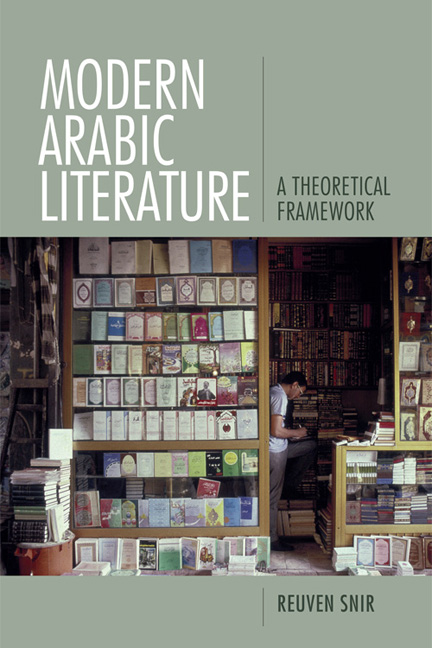Book contents
1 - The Modern Arabic Literary System
Published online by Cambridge University Press: 03 January 2018
Summary
A literary text may be defined as any text that in a given community has been imbued with cultural value and that allows for high levels of complexity and significance in the way it is constructed. At the same time, the designation “literary text” points not to an inherent property of certain kinds of objects, but rather to a quality assigned by people involved in producing, reading, and analyzing those objects. Texts perceived as literary by one culture or community are seen as non-literary by another, and one and the same text may also change from the former category to the latter and vice versa. Additionally, in certain periods non-literary genres may serve a function which in other periods was served by literary genres (and vice versa). For the purpose of the present study, I will define the Arabic literary system as the network of relationships that exist at any period of time between all texts written or uttered in Arabic and that were considered to be literary texts as of this study's creation. That is, I will consider any text, as soon as it is perceived to be literary by any community either within or outside the Arab world, to be part of the system regardless of how one may evaluate it.
Viewed as a dynamic, literary, and autonomous system, this network of relationships encompasses not only all original literary texts written in Arabic, but also texts translated into Arabic and even potential texts, all of which thus simultaneously “belong to” and “constitute” a single whole. And this is for a purely practical reason: For the reader, this network may include all literary texts existing at the moment he or she is perusing these pages.
Before I set out the theoretical framework that underlies this literary system, which will be our main concern in this study, I will first outline the scope of our research subject and look at the question of how popular literature or―if you wish―popular art in general can be given aesthetic legitimation.
- Type
- Chapter
- Information
- Modern Arabic LiteratureA Theoretical Framework, pp. 8 - 34Publisher: Edinburgh University PressPrint publication year: 2017



